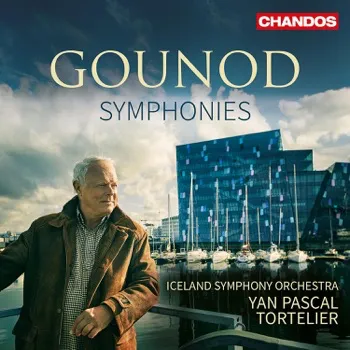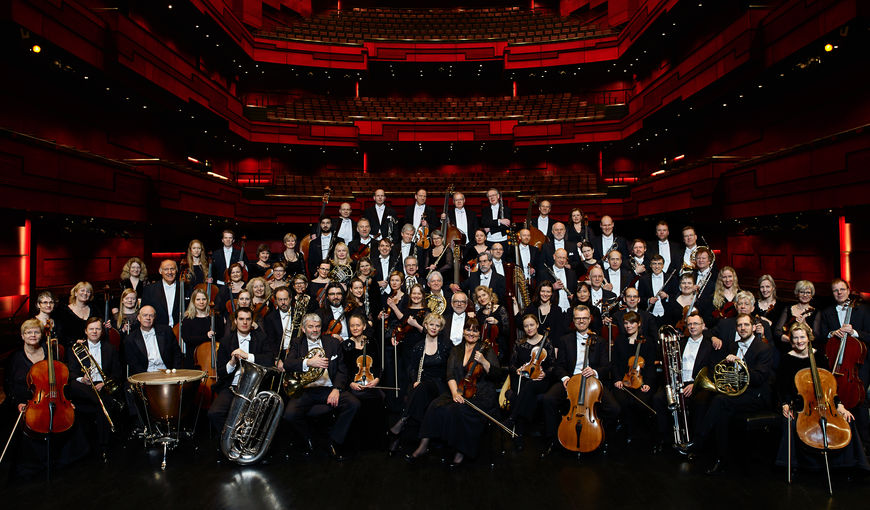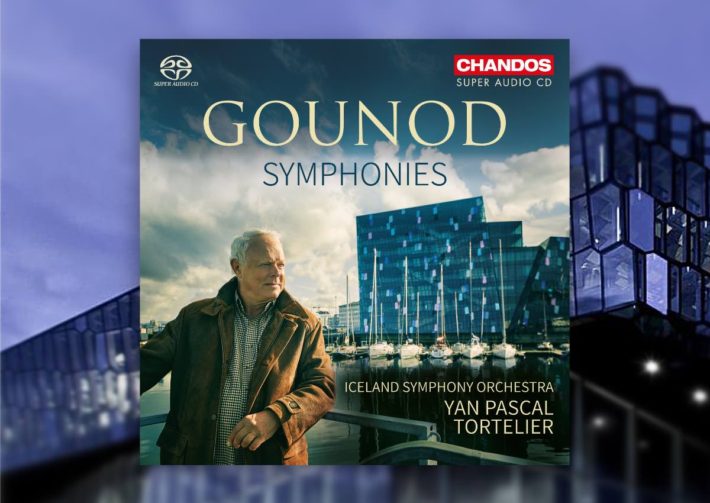The illuminating booklet article by Roger Nichols mentions the weak cultural disposition of the Symphony in the French music scene of the mid-19th-century, when the pieces we have here were composed. And indeed, though other orchestral attempts of the period not officially a “Symphony” seem more daring, these are charming works, with classical form and harmonic organization. At their best, they can put a smile at any classical music lover.

The First Symphony, the more lightweight and Haydn-influenced from the two, is opened with gusto by the Iceland Symphony Orchestra, strings nice and transparent, woodwinds give ample support and solo contributions. The second subject is especially well treated, with a sunny approach that suits the contrasting, contentious development which comes later. And what a terrific balance between romantic charm and classical reservedness they show at the last minute of this movement (the last bars are where the Haydn influence is most apparent).
The second movement seems to be too driven at first, but arriving at the fugue-like episode in the middle of the movement works extremely well in this tempo. Marriner and his ASMF took the same approach, while others (some listed below) treated this Allegretto as a solemn funeral march, taking out the sting from the contrapuntal writing.
The final movement requires some challenging strings accuracy, which the members of the ISO meet quite successfully, with an exciting closing to the Symphony. If there is a slight annoyance in this piece, its with the rather over-resonant recording, taken from the new Harpa Hall, much praised for its acoustics but here tends to blur some details when the players play rapid figurations. And the closely recorded timpani sounds excitingly punchy at first, yet gets old as the piece is coming along. Things get slightly better with the Second Symphony, though.
This is a bolder attempt at a Symphony, and here it’s Beethoven’s influence that’s omnipresent. Again, the performers are making their best of maintaining the appropriate balance of the many characteristics of this piece, taking it seriously but not too much as to stop listeners from smiling at certain moments; For instance, the first movement’s fast episode after the opening Adagio is almost a direct quote from the Eroica, and it can easily turn into a phrase if not done right. Here the orchestra brings in all of their charms to the second subject coming in at 2:55, lightening up the atmosphere. Nice control over vibrato and long-lines in the Larghetto as well, with some lovely oboe, flute and clarinet playing in the same movement (track 6).

The two final movements are equally enticing, and especially the Scherzo, where the dark low strings are met with the humorous woodwind. And this time the timpani’s balance sounds just right – listen to the forceful response at 02:00 (track 7).
From available alternatives, the Orchestra della Svizzera Italiana under Oleg Caetani (CPO) are a more closely recorded, wilder and even riskier version, though Tortelier and the ISO are better in the Second Symphony. Sir Neville Marriner’s account of the two symphonies still sounds exquisite, yet available only for streaming. John Lubbock And the Orchestra of St. John’s Smith Square are also an attractive alternative, yet here the Icelandic woodwinds are superior. Patrick Gallois version for Naxos is a cheaper yet rather unmemorable alternative. With only two competitive recordings readily available at the date of posting this review, this certainly goes to the top of the recommendations.
Gounod – Symphonies No. 1 & 2
Iceland Symphony Orchestra
Yan Pascal Tortelier – Conductor
Chandos Records, CD CHSA 5231




















